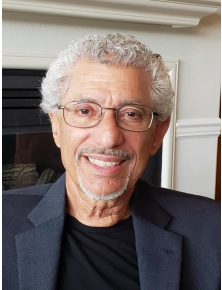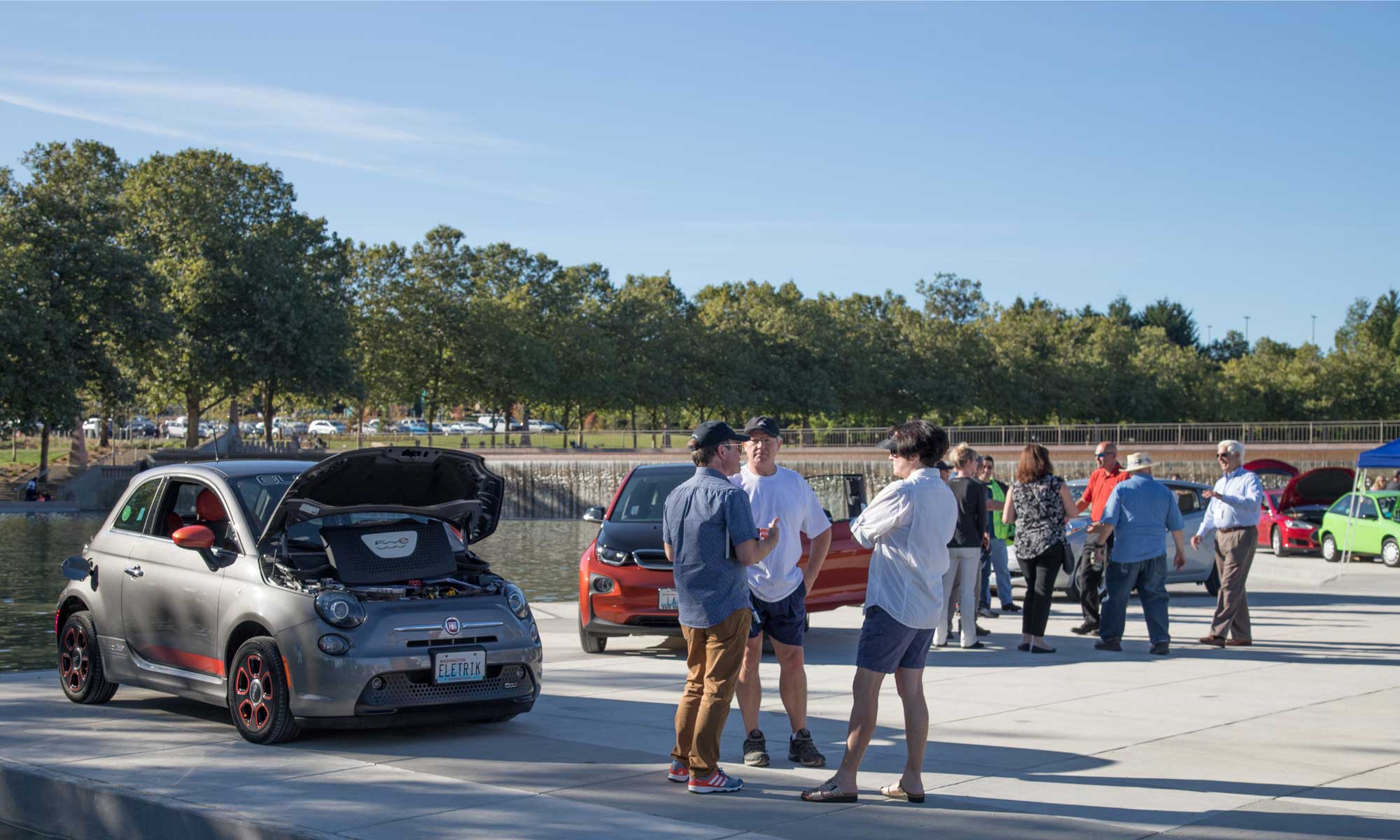Ron Johnston-Rodriguez

In March 2017, four EV advocacy organizations signed a Memorandum of Understanding (MOU) declaring their intent to create an entity to accelerate the rate of adoption of electric vehicles throughout Washington state. The
collaborative’s original name, Washington Electric Vehicle Coalition (WEVCO), was renamed in June 2017 to Drive Electric Washington (DEWA).
Original signatories included: Seattle Electric Vehicle Association (SEVA), Plug-In North Central Washington (PINCW), North Sound EVA and Plug-In
America (PIA). In 2018-19, Coltura and San Juan County EAA also signed the MOU.
As a member of SEVA and the PINCW board Ron Johnston-Rodriguez previously had circulated a proposal among the founding organizations. Once executed, the MOU served as the founding document for the inaugural meeting of the coalition (4-15-2017), attended by: Jack Anderson, Garrett Brown, Jay Donnaway, Jeff Finn, Tyrell Haverman, Brian Henderson, Steve
Lough, Matthew Metz, Grace Reamer, Tom Saxton, Chad Schwitters, Philip
Skoog and Ron. These individuals became the first DEWA steering committee members and contributed to the crafting of goals, work plans, bylaws, projects, meeting agendas, and incorporation of DEWA as a 501(c)(3) non-profit business (IRS tax-exempt notification received on 6-
12-2017). The committee also elected DEWA’s first board of directors on June 1, 2017 as follows: President, Ron Johnston-Rodriguez; Treasurer, Steve Lough; Trustee, Chad Schwitters. In 2019 Tom Saxton (IT Manager) and Matthew Metz (General Counsel) were voted onto the board.
Mission/ Approach – DEWA’s mission, goals and approach is summarized in this excerpt from a 2018 fact sheet: “Drive Electric Washington – Expediting transportation electrification in Washington by helping stakeholders coordinate and collaborate on projects to improve the EV ecosystem. In
pursuit of its mission (DEWA) may serve as an information clearinghouse, forum, partner, initiator and/or coordinator for educational, promotional, and policy-crafting activities deemed to advance the adoption of EVs and
deployment of charging infrastructure throughout Washington State.”
Meetings – Regular meetings were conducted between March 2017 and 2019 in various locations in the Seattle area, though some were virtual only. On several occasions, meetings were scheduled to coincide with major EV networking events (e.g., Forth’s presentations in Seattle) or featured guest speakers. In 2020 the board agreed to move to a quarterly online-only meeting schedule; however, the pandemic and other issues intervened and put meetings on hold until February 2021, when Chad took the lead on reviving DEWA activities. The board reconvened and selected Jennifer Harper as president (replacing Ron upon his retirement) and Grace as vice president.
Workplans/Projects – The board and advisory committee generated work plans outlining specific projects, although without funding or paid staff, project execution was dependent solely on volunteers. Nevertheless, dedicated volunteers did succeed in achieving incremental tasks and “moving the needle” on several projects, such as organizational structures,
public policy issues, and EV education and awareness efforts.
Since 2017, DEWA has been able to accomplish a number of activities serving its mission:
Organizational
- Website development, gmail accounts, and protocols for online/tele-meetings
- Online surveys to determine meeting schedules and member preferences on issues
- filing articles of incorporation with the IRS and WA Secretary of State
- Business license registration
- Establishing a bank account and financial recordkeeping
- Registering DEWA for contributions via Amazon Smile and Benevity Fund
- Identification and solicitation of organizations to approach for DWA membership and/or partnerships
Public Policy
- Educating elected officials in the Washington State Legislature and advocacy for EV-friendly public policies loomed large in DEWA’s annual work plans. Much information gathering and debate amongst board and advisory committee members preceded adoption of policy positions. To streamline the process, a DEWA Policy Committee was created in 2019 to research pending bills and make recommendations to the board and advisory committee. Also assisting was Forth’s director of government relations and lobbyist. Highlights of activities in the policy arena:
- Monitoring state governmental compliance with EV regulations and laws – In 2018 DEWA’s board and steering committee voted to testify to the state Legislature and publicly support activities to monitor and assist governmental organizations in Washington to comply with the state’s Fleet Electrification Law (RCW 43.19.648). Said “activities” were detailed in “Recharge Required,” a report by Coltura.
- Gas Phaseout legislation (spearheaded by Coltura) – Submitted oral and written testimony (February 2020) in support of HB 2515, the Washington Electrified Transportation Act, requiring that all model year 2030-or later passenger and light-duty vehicles newly sold in Washington State be electric.*
- EV infrastructure advocacy for rural areas/EV Tourism destinations – Assisted the White Pass Scenic Byway board to launch its effort to build out an EV scenic highway loop serving White Pass. A by-product of this effort was the introduction of DEWA to Jennifer Harper of Energy Northwest’s EVITA, who prepared the grant application for funding through the Washington State Department of Commerce’s Clean Energy Fund – Electrification of Transporation Systems.
- Recommendations re: EVSE Funding via Washington’s EVIPP and Electrify America – Submitted information and recommendations to WashDOT/Commerce and Electrify America regarding investment in charging stations for travel (tourism) destinations throughout Washington and identified 35 specific locations for charging stations along scenic byways.
State Parks – Met and corresponded with state parks administrators in 2018 to advance the provision of charging opportunities at state parks and
promote electrification of park fleet vehicles.
EV Education and Awareness – In 2017-18, a collaborative project sought to
develop a curriculum for 3rd-5th grade students enrolled in an after-school
enrichment program affiliated with Seattle Parks and Recreation. Lesson plans were written for several of the planned 12 hour-long classes.
Other projects ideas explored by DEWA members for future implementation included: website build-out, publication of an online Statewide Calendar of EV Events, Dealership Education and Awareness, Speakers Bureau, developing engaging videos and podcasts about electric mobility; generating “State of the State” EV Ecosystem Reports, and
resolving issues (i.e., insurance) for ride-and-drive public demonstrations of electric vehicles.
Many thanks to our retired Board President, Ron Johnston-Rodriguez for his many years of dedication!
Ron organized a broad-based coalition to advance the prospects for transportation electrification in rural and urban regions of Washington in 2005. Activities included educating municipal, state, and business leaders about the emergence of highway-capable EVs and EV readiness; vehicle conversions (ICEs into PHEVs) for a dozen fleets to participate in a EV research project with US DOE / Idaho National Lab; producing the first transportation electrification conferences in the Northwest (Power-Up Summits); and assisting the legislature in development of the first RCWs to support vehicle electrification efforts in Washington.
In 2011 he founded Plug-In North Central Washington to develop and promote vehicle electrification and EV tourism for that 3-county region and led the organization’s launch of the USA’s first ‘Electric-Vehicle Friendly’ National Scenic Byway (Stevens Pass Greenway) and electrification of Washington’s 440+ mile Cascade Loop Scenic Drive (2014) – earning its distinction as the longest EV-friendly scenic drive in the USA.
*2020’s HB 2515 did not pass. Ultimately, ESSB 5974 was passed in 2021, which resulted in the inclusion of a target for 2030: (Section 415) (1) A target is established for the state that all publicly owned and privately owned passenger and light duty vehicles of model year 2030 or later that are sold, purchased, or registered in Washington state be electric vehicles. (2) On or before December 31, 2023, the interagency electric vehicle coordinating council created in section 428 of this act shall complete a scoping plan for achieving the 2030 target.
